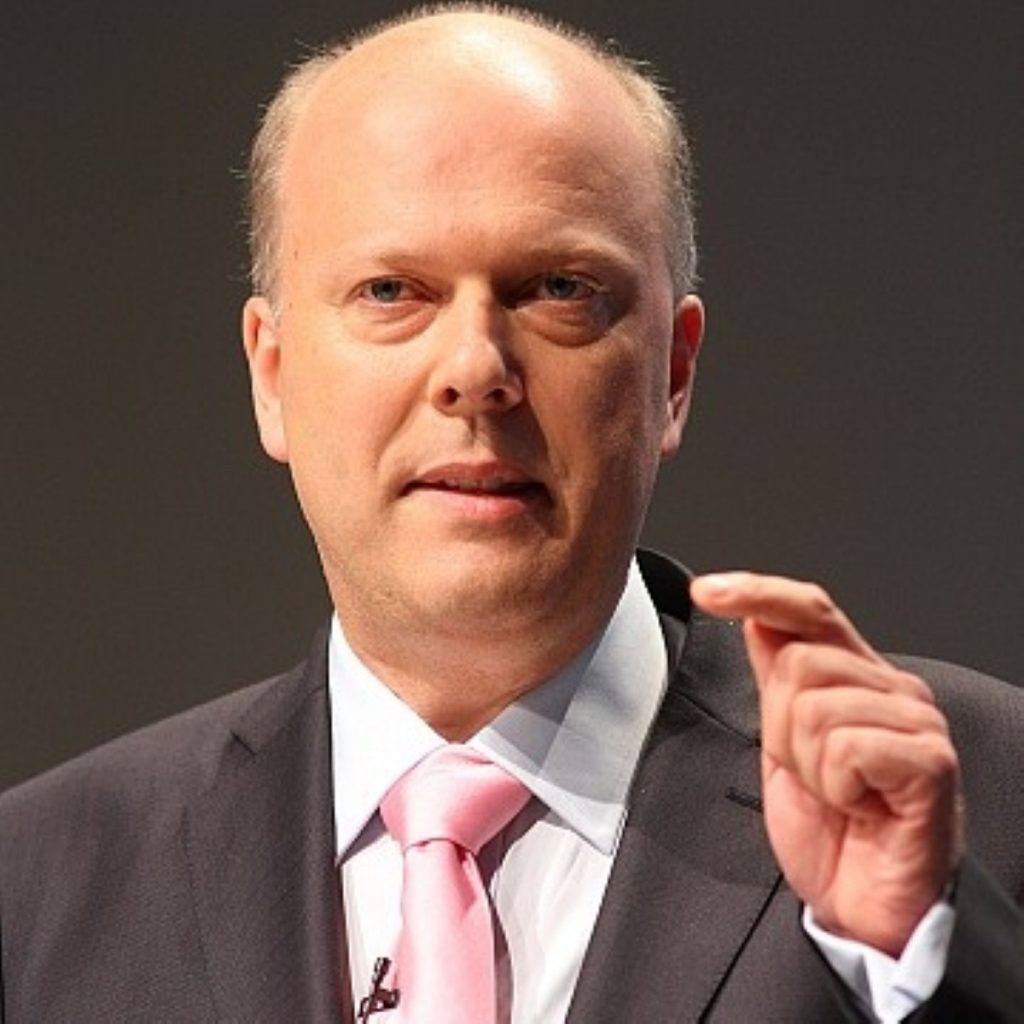Tories revert back to law and order agenda
By politics.co.uk staff
The Conservatives reverted back to a more traditional law and order agenda at their conference in Manchester today.
After several years of more progressive policies, typified by David Cameron’s famous ‘hug a hoodie’ comments, the party’s home affairs team unveiled a tough set of measures to designed to prioritise public safety over criminal’s rights.
Shadow justice secretary Dominic Grieve outlined plans to cut down criminals’ privacy, giving the police powers to reveal their identities, when he addressed the conference this morning.


Meanwhile, shadow home secretary Chris Grayling pledged a crackdown on Islamic extremists, especially those who protest against the armed forces.
People who arrange for ‘preachers of hate’ to come to the UK to address Muslim audiences through video-link will also find themselves in the firing line in a speech which stressed that all extremists, not just violent ones, should face sanction.
“If I’m home secetary the people who organise those meetings will be arrested and they will be prosecuted,” Mr Grayling told a packed conference this morning.
“Under this government the extremists have been free to protest on our streets. We cannot and will not allow this to continue.”
Mr Grayling reiterated that the party would ban Hizb ut-Tahrir, an extremist group regularly accused of anti-semitism, if it came to power.
The shadow home secretary put anti-social behaviour at the centre of his speech, with demands for tougher action against crime on Britain’s streets.
“We have to get to grips with the social problems that foster crime,” he told delegates.
“But right now people feel hugely frustrated. Under Labour those who commit crime and anti-social behaviour are just getting away with it. If we win, it will stop.”
The speech was a far cry from the more moderate, civil libertarian musings of the shadow home secretary at a Liberty fringe event last night.
Mr Grayling spent much of the evening berating the government for its counter-terrorism strategy, including the retention of innocent people’s DNA and pre-charge detention.
But he spoke out against the Human Rights Act. Mr Cameron stressed that the party was still committed to scrapping the Act when it came to power and replacing it with a British bill of rights over the weekend.
That sentiment was echoed by Mr Grayling and former shadow home secretary David Davis last night at the Liberty event. Mr Grieve has argued that the Act puts public safety after the rights of criminals.
“A Conservative government will free the police, probation and prison services to name offenders where necessary in order to protect the public and prevent crime,” he told the BBC.
The Human Rights Act has led to local people not being informed of dangerous offenders moving into their area, the shadow justice secretary argued during his keynote conference speech earlier today.
“A Conservative government will free the police, probation and prison services to name offenders where necessary in order to protect the public and prevent crime,” he said.
The attack drew an instant riposte from justice secretary Jack Straw.
“Nothing in the Human Rights Act prevents publishing the details of an offender if he or she presents a danger to the public,” Mr Straw said.
“In fact, the Act explicitly allows public authorities to interfere with an individual’s right to privacy in the interests of public safety or for the prevention or detection of crime.”
The Human Rights Act was brought in by Tony Blair in his first term as prime minister.









